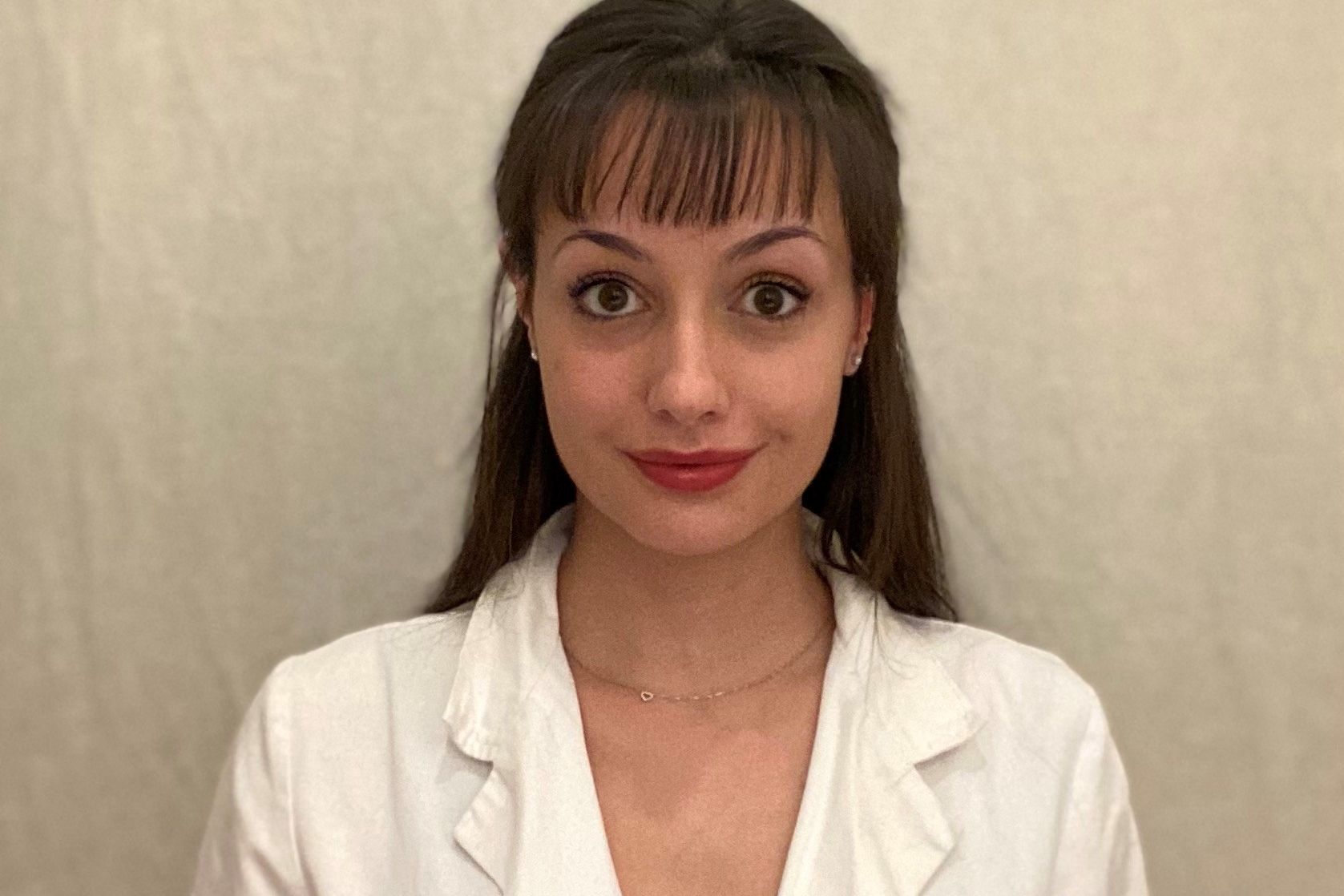
(Vienna, 23 March 2021) Béatrice Susanne Kahl has been selected by the European Heart Journal, as laureate of the Congenital Heart Disease - Case of the Year Award. The member of MedUni Vienna's Division for Paediatric Cardiology received the award for the publication of a double valve replacement using transcatheter biovalves in an infant with a serious congenital heart defect.
The treatment of complex congenital heart defects follows standardised protocols, for both surgical and catheter-based procedures. However, there are sometimes borderline cases that require individual therapeutic decisions to be made to ensure optimal medical and surgical treatment.
Depending on the size and function of the heart and heart valve structures, it is not always possible to reconstruct dysmorphic or hypoplastic atrioventricular valves so that they can be retained. At the same time, there are neither biological nor mechanical heart valves available in an appropriate size for young infants. On top of that, systemic anticoagulation as would be required for a mechanical valve is challenging at this age.
In the published case from the Children's Heart Center Vienna, a successful single step replacement of both atrioventricular (AV) valves was performed for the first time in an infant using two Melody transcatheter valves.
The nine-month-old infant with a right-dominant atrioventricular septal defect initially underwent corrective surgery to retain the valve, but satisfactory valve function could not be achieved.
Further AV valve reconstruction did not look promising, so the team at the Children's Heart Center Vienna comprising Daniel Zimpfer (Department of Heart Surgery) and Ina Michel-Behnke (Division of Pediatric Cardiology, UKKJ) decided to pursue a hybrid approach.
Percutaneous valve replacement of a pulmonary valve is a routine procedure at the Children's Heart Center Vienna for a long time. The implant (Melody valve) is a biological valve from a bovine jugular vein sewed into a stent and can be implanted in children over 30 kg as a in the catheter laboratory.
The Viennese children's heart surgery/paediatric cardiology team has already proven on multiple occasions that, in a modified form, this valve can be used as a mitral valve substitute in children in the operating theater and has published their data in an international study.
Based on this experience, a procedure was performed on the 7-kg infant to insert two Melody valves, one into the position of a tricuspid valve and a second implant into the position of the mitral valve in a single surgical step. To do this, Daniel Zimpfer trimmed the valve that was originally too long for the small heart to a length of approximately 2 cm, so as not to obstruct systemic and pulmonary venous drainage. Additionally, by using a special surgical technique of anchoring the implant, it was possible to avoid any obstruction of the left ventricular outflow tract. The final width of the valve was then achieved by intraoperative balloon dilation to the pre-determined nominal size.
Following a straightforward procedure and a short stay on the paediatric ICU, the child recovered very quickly on the cardiac ward of the Department of Pediatrics and Adolescent Medicine. Anticoagulation therapy was only needed for a short time and the echocardiographic results showed excellent valve function of the implants that are primarily certified as a "transcatheter valve".
The innovative approach presented allowed biventricular correction of a complex heart defect, where the standard techniques were not applicable.
It was demonstrated that the bovine valve leaflets of the catheter valve worked efficiently also in the systemic circulation exposed to a high pressure environment.
Moreover, the design of the stent valves allows for future adjustment of the valve size to adapt to the patient's growth by means of percutaneous post-dilation. This could potentially avoid the need for subsequent operations.
About Béatrice Susanne Kahl
Béatrice Susanne Kahl is a junior doctor in residency training at the Division of Pediatric Cardiology of the Department of Pediatrics and Adolescent Medicine, MedUni Vienna and Vienna General Hospital. Before that she was a research assistant at the Ludwig Boltzmann Cluster for Cardiovascular Research in Wilhelminen Hospital. She completed her medical degree at MedUni Vienna.
Link to publication
https://academic.oup.com/ehjcr/article/4/4/1/5881465